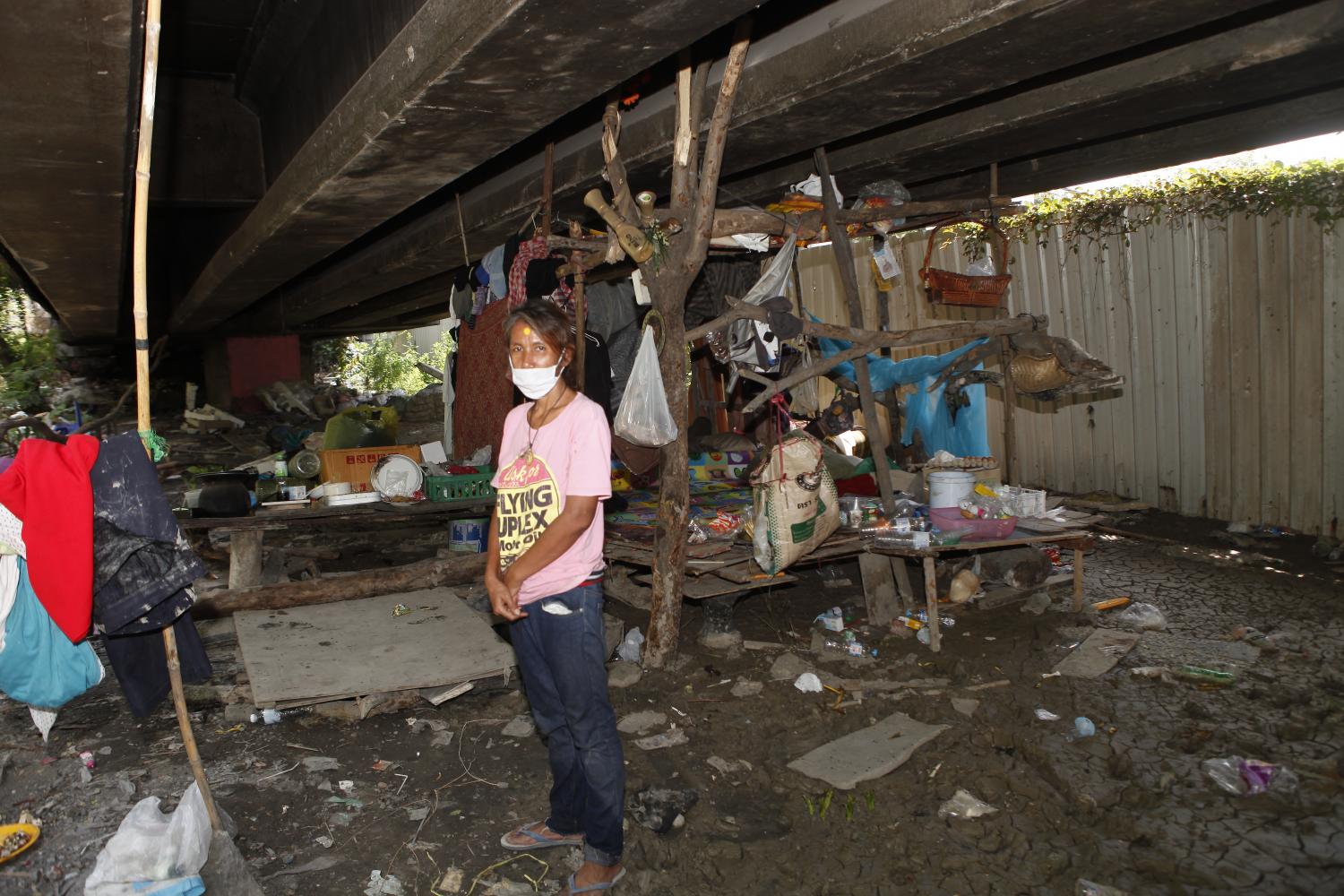
The new coronavirus pandemic is continuing to wreak havoc on people from all walks of life. But perhaps no one has been hit harder in the Thai capital than a group of deaf people living underneath a section of the Rama IX expressway.
While not every member of the 112-strong community is deaf, a large number, 43, are.
Before the onset of Covid-19, several of them regularly toiled away at the nearby RCA night entertainment venue, either at restaurants or by selling flowers and other wares to nightclub patrons. Others simply collected bottles and other recyclables, which they later turned in for money.
But after the pandemic hit, the venue was shuttered, leaving the members of this community without a way to make ends meet.
They currently live three to four in 20-square-metre rooms, primarily fashioned from sheets of plywood. All of the deaf residents share bathrooms and toilets. Their common area is a path between rows of conjoined rooms.
Sombat Phonimdaeng, 64, the community leader, said he had been born and raised in the ramshackle Rama IX expressway settlement. Now, he is raising his own family there.
He works as a mechanic repairing motorcycles and electrical appliances and also produces custom-made aluminium racks for customers. Other deaf people followed him to the settlement, asking if they could live there.
Some have come from other provinces while other natives of the capital without there own homes moved in so they wouldn't be a burden on their families, he said.
Mr Sombat allows them to share tap water and electricity, which costs him between 8,000 and 9,000 baht a month. All of them help split the electricity and tap water bills and try to use them sparingly.
In Mr Sombat's house is a sizeable metal cabinet he uses to store tools he has been collecting for years. He is very proud of his collection, saying he had bought them with money he has earned through his labour. He also has a small metal box which he has fashioned into a piggy bank.
"Anytime I've got some coins I drop them into the box. Sometimes this money goes to helping other deaf people in need. Other times I use it to buy new tools," he said.
Mr Sombat has also taught other deaf people in the community how to make aluminium racks and stands so they can earn a living by selling them to clothing vendors in Patpong and around Sukhumvit. These vendors are also deaf.
Their plight has come to the attention of the Social Development and Human Security Ministry, which is now looking to give a helping hand.
Social Development and Human Security Minister Chuti Krairiksh, who recently led a team to visit them, said he would like to ask everyone there to consider moving to live into flats being provided by the National Housing Authority.
The residence is far away from their settlement, and each tenant would be required to pay 999 baht a month for rent, said the minister. But the rental fee will be waived for the first three months and three free meals will be provided each day, as well as occupational training, said Mr Chuti.
He added a team will be sent next week to lead Mr Sombat and his community to visit their new potential living quarters.
During a previous visit to the settlement, the Department of Empowerment of Persons with Disabilities handed out bags of food and other necessities to the deaf residents and took down their personal information for their records in case help was needed.
All of those who are already registered are entitled to receive 1,000 baht in financial aid being offered to disabled people during the Covid-19 outbreak, said the department.
The department is also carrying out a large-scale survey of disabled people to ensure that all of them can receive government assistance.
